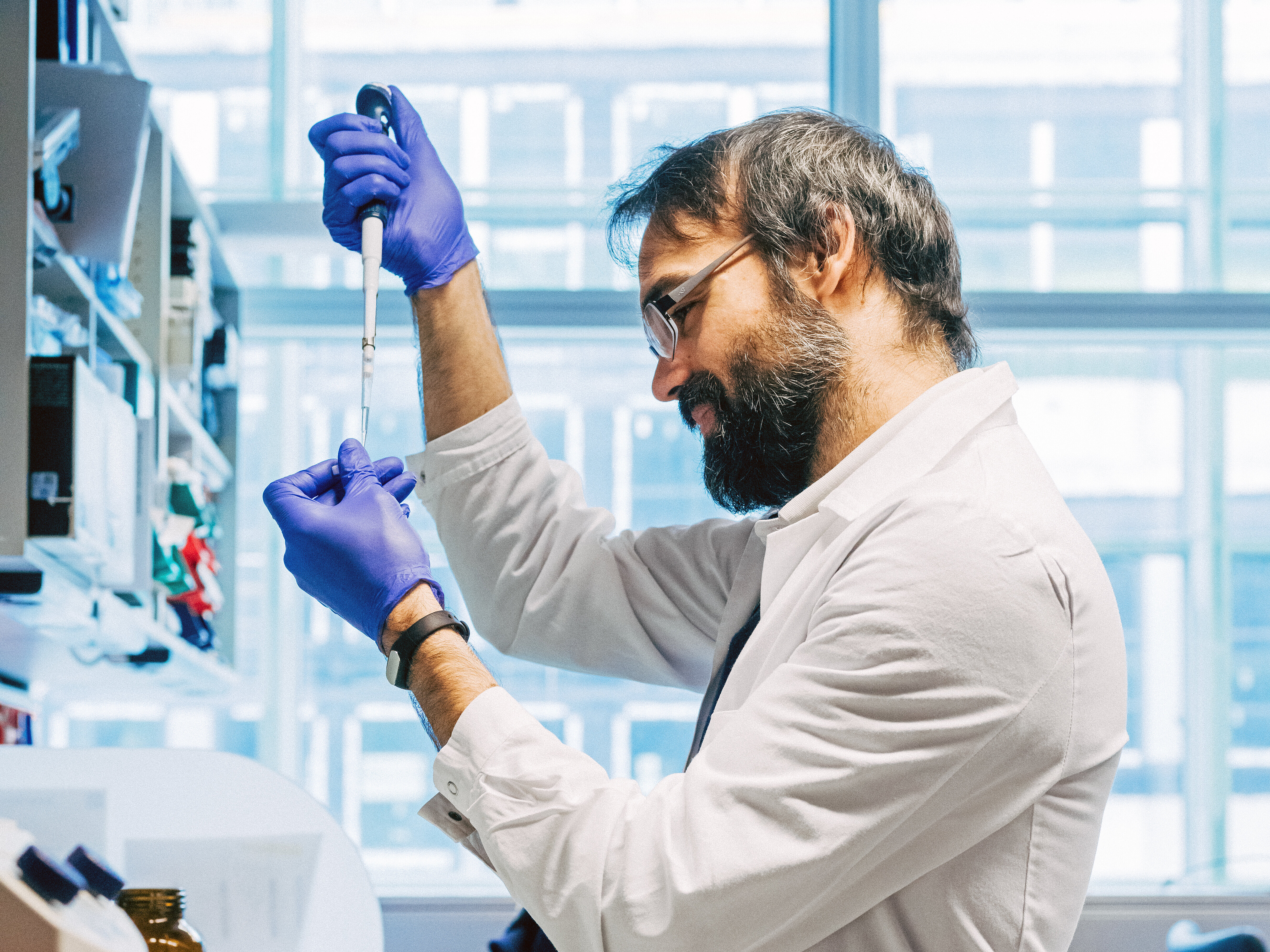It all started in 2003 with a research group led by Australian geneticist Barry Dickson. Now, 20 years later, IMBA - the Institute of Molecular Biotechnology - is the largest research institute of the Austrian Academy of Sciences (ÖAW) with around 250 employees from more than 40 nations. A total of 14 groups are currently conducting basic research on stem cells, organoids, RNA biology and chromosome biology. Located at the Vienna BioCenter, IMBA is one of the leading biomedical and molecular biology research institutes in Europe.
To date, scientists at the institute have published more than 1,000 papers, founded five spin-offs, and acquired 21 highly endowed grants from the European Research Council (ERC). Researchers at IMBA, including Barry Dickson, Jürgen Knoblich, and Josef Penninger, have been awarded the Wittgenstein Prize, Austria's highest research award, three times.
International beacon of life sciences in the heart of Vienna
ÖAW President Heinz Faßmann underlines the importance of IMBA for the Austrian research landscape and the international scientific community: "In the last two decades, IMBA has achieved groundbreaking successes and established itself as a top international institute. Much of what is now standard in the life sciences, such as research with organoids, was significantly advanced at IMBA. With its outstanding research achievements in the fields of stem cell research, cancer biology and genome regulation, IMBA is an example of excellence in Austrian science and a magnet for top scientists from all over the world."
Mayor Michael Ludwig emphasizes the importance of the ÖAW Institute for Vienna as a life science location. "Vienna has an excellent reputation as a location for research and science, and the Life Science Hub here in Vienna creates jobs and fuels economic growth. IMBA, as one of the institutes at the Vienna BioCenter, is one of the flagships of the life sciences in Vienna and offers an inspiring environment for research. Several spin-offs have already emerged from IMBA, further strengthening the location and its competitiveness."
Federal Minister Martin Polaschek also congratulates IMBA: "IMBA stands for excellence, winning the most prestigious prizes and awards, and making important discoveries in biomedical research. However, its building is also home to the Vienna Open Lab, which gives people a chance to do science for themselves. Great research also enables the conception and implementation of outstanding initiatives to make science and research tangible and experienceable. This creates confidence in Austrian research and reduces skepticism about science. I congratulate the Institute of Molecular Biotechnology at the ÖAW on its 20th birthday and wish it continued success."
Breakthroughs in organoid and stem cell research
Among the major breakthroughs achieved at the ÖAW Institute are the development of the world's first human brain organoids used for research into brain diseases by Jürgen Knoblich and his group, as well as the first heart organoids and human blastoids. In addition, researchers at IMBA achieved a profound understanding of chromatin, the structure of our chromosomes. They also uncovered the fascinating ways cells shield themselves from disease-causing genes that have the ability to change their position within the genome, known as transposons. Josef Penninger and his research team performed groundbreaking research to understand various diseases. They explored the role of a protein called RANKL, which is naturally present in our bodies, in the development of osteoporosis. This condition is characterized by weakened bones, and their studies shed light on how RANKL contributes to its progression.
"One of the secrets of our success is our willingness to venture into risky research projects that push the boundaries of our knowledge," explains Jürgen Knoblich, scientific director of IMBA. "The close collaboration between the research groups at IMBA and at the Vienna BioCenter makes it possible for our researchers to apply innovative methods and explore new areas."
Exploring the Unknown - Ceremony with Politics, Science and Art
Under the theme "Exploring the Unknown: Our Passion, our Future", IMBA will celebrate its research anniversary on June 13 and 14 with a festive event, a scientific symposium and an art salon. Guests from science and politics, including Federal Minister Martin Polaschek, Vienna's Mayor Michael Ludwig and ÖAW President Heinz Faßmann, are invited to a ceremony at IMBA on June 13. Maria Leptin, President of the European Research Council (ERC), and Tony Hyman, winner of the Breakthrough Prize 2023, as well as Josef Penninger and Jürgen Knoblich - the scientific directors of IMBA - will look at the past, present and future of the institute.
On June 14, the research community will celebrate the Institute's scientific breakthroughs and the diverse, international career paths of its alumni in a symposium. Keynotes by Maria Leptin on the importance of basic research and by Tony Hyman, who chaired IMBA's Scientific Advisory Board for many years, will provide a thematic bracket around "Exploring the Unknown."
The many connections between art and science have been an important pillar in IMBA's research world from the beginning. In the art salon on June 14, artists - graduates of the Erwin Wurm master class who realized artworks at the IMBA as part of a competition - will meet scientists, including Josef Penninger, to reflect on the interaction of art and science in a discussion.




